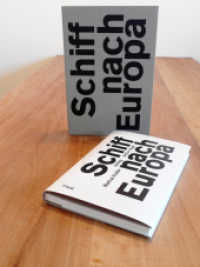Description
This book constitutes the refereed proceedings of the 2nd International Conference on Emerging Technologies and Educational Innovation (ICETEI 2025), organized by the Red de Educación con Tecnologías Emergentes (EDUTEM) and held virtually on November 13 14, 2025.
The selected papers reflect both theoretical advances and applied research across four main thematic areas: digital technologies and smart systems; applied computing and intelligent solutions; digital education and learning analytics and innovative technologies for teaching. The conference attracted submissions from Latin America, Europe, and other regions, highlighting its growing international scope. Out of 50 contributions received, 24 papers were accepted for publication after a rigorous double-blind review process.
This second edition of ICETEI reinforces the importance of fostering collaboration between educators, computer scientists, engineers, and policy-makers. The proceedings provide valuable insights into how emerging technologies and innovative pedagogical approaches can advance equity, engagement, and sustainability in the digital age.
Introduction.- Track 1: Pedagogical Innovation and Active Learning.- Project-based and problem-based learning.- Gamification and formative assessment.- Computational thinking and student engagement.- Peer feedback and reflective learning practices.- Track 2: Digital Learning Environments.- Hybrid, mobile, and online education.- Learning analytics and data-informed teaching.- Digital identity and personal learning environments.- Instructional design supported by educational technologies.- Track 3: Artificial Intelligence in Education.- AI applications and predictive modeling.- Machine learning for academic performance analysis.- Intelligent tutoring and adaptive learning systems.- Ethical challenges of AI and big data in education.- Track 4: Immersive Technologies and Interaction.- Virtual, augmented, and mixed reality (XR) in education.- Educational simulations and interactive experiences.- UX design for immersive learning tools.- Interfaces for skill and cognitive development.- Conclusion.
Jorge Buele is a professor and researcher at Universidad Tecnológica Indoamérica, where he coordinates scientific production and research projects related to virtual reality and automation. He holds a Ph.D. in Electronic Engineering from the University of Zaragoza, Spain, and a master's degree in Integrated Management Systems from Universidad Internacional de La Rioja. He currently serves as President of the Red de Educación con Tecnologías Emergentes (EDUTEM). His academic work includes publications in high-impact journals and participation in numerous scientific committees for international conferences.
Guillermo Palacios-Navarro is an Associate Professor at the University of Zaragoza, Spain. He received his Ph.D. in Telecommunication Engineering from the same university and was a visiting faculty member at the Massachusetts Institute of Technology (MIT), USA. His research focuses on virtual rehabilitation, assistive technologies, and the use of immersive environments for neurocognitive recovery. He has authored numerous journal articles and book chapters and has been a member of scientific committees and keynote speaker in several international conferences.
Fátima Avilés-Castillo is a doctoral candidate in Electronic Engineering at the University of Zaragoza, Spain, and full-time professor at Universidad Tecnológica Indoamérica, Ecuador. She holds an M.Sc. in Information Technology with a specialization in Communication Networks. Her research interests include user experience, virtual reality, and immersive learning environments. She has experience in academic publishing and has served as Publication Chair for the international conferences CSECity 2023 and 2024.








